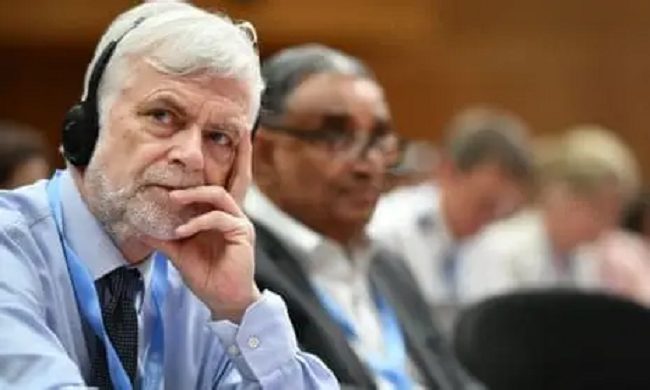The Intergovernmental Panel on Climate Change (IPCC) has appointed 664 experts from 111 countries to participate in the Seventh Assessment Report (AR7) as Coordinating Lead Authors, Lead Authors and Review Editors.
Eight of the 664 scientists are Nigerians. They are Elijah Adefisan of the Federal University of Technology, Akure, who will be contributing to Chapter 7 (Projections of regional climate and extremes) of the AR7 Working Group I; Temitope Samuel Egbebiyi of the University of Cape Town in South Africa – Chapter 2 (Vulnerabilities, impacts and risks) of AR7 Working Group II; Ayansina Ayanlade of the Obafemi Awolowo University, Ile-Ife – Chapter 5 (Responses to loses and damages) of AR7 Working Group II; and Ibidun Adelekan of the University of Ibadan – Chapter 18 (Adaptation of human settlements, infrastructure and industry systems) of AR7 Working Group II.

Others include Salisu Lawal-Halliru of the Yusuf Maitama Sule Federal University of Education, Kano – Chapter 20 (Poverty, livelihoods mobility and fragility) of the AR7 Working Group II; Chioma Daisy Onyige of the University of Port Harcourt – Chapter 4 (Sustainable development and mitigation) of the AR7 Working Group III; Taofeeq Ibn-Mohammed of the University of Warwick – Chapter 8 (Services and demand) of the AR7 Working Group III; and Ogheneruona Diemuodeke of the Energy Technology Institute, University of Port Harcourt – Chapter 9 (Energy systems) of the AR7 Working Group III.
While Adefisan, Egbebiyi, Onyige and Ibn-Mohammed are Lead Authors (LA), Ayanlade and Adelekan are Review Editors (RE), even as Lawal-Hallinu and Diemuodeke are Co-ordinating Lead Authors (CLA).
The experts were nominated by governments and IPCC observer organisations and selected by the IPCC Bureau from a global pool of 3,771 nominees.
Of the 664 appointed experts, more than half (51 per cent) come from developing countries and countries with economies in transition. Nearly half of the authors are female scientists, constituting 46 per cent of the group. For comparison, in the Sixth Assessment Report (AR6), the IPCC appointed 721 authors from over 90 countries.
Of these, 44 per cent were from developing countries and countries with economies in transition, 53 per cent were new to the IPCC process, and 33 per cent were female. The nominations of all appointed authors have been reviewed under the IPCC’s Conflict of Interest process, and they have accepted their invitations.
“The appointment of the author teams means that work on the Seventh Assessment Report on the state of climate science can now begin. The author teams, drawn from several thousand excellent nominations, ensure outstanding expertise across a range of disciplines. We are proud that the new author teams reflect increased diversity, in terms of both gender balance and greater representation from developing countries and economies in transition,” said IPCC Chair, Jim Skea.
The appointed authors will now begin their work on assessing relevant literature and preparing drafts of their respective reports on the basis of the outlines of the Working Group contributions to the AR7, agreed upon by the Panel at its 62nd session in Hangzhou, China, in February 2025. The First Lead Author meeting is scheduled for early December.
The three IPCC Working Group reports are expected to start appearing in mid-2028, while the Synthesis Report that will conclude the entire cycle will be approved by late 2029, completing the seventh assessment cycle.
The list of selected Coordinating Lead Authors, Lead Authors and Review Editors by Working Group contribution to AR7 and chapter can be accessed here.
By Olalekan Anjolaiya
